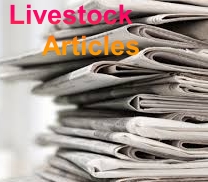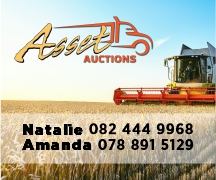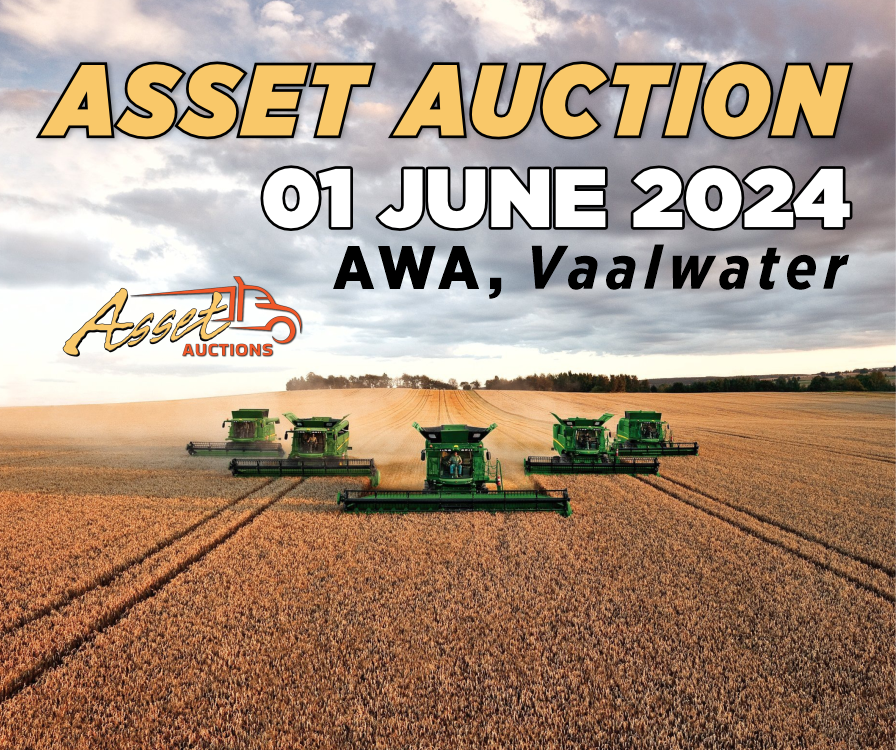How an Irish family is
changing the narrative
around dairy farming
Public opinion on farming practices has taken a negative slant the world over as social media perpetuate stereotypes of farmers who only seek profit, to the detriment of the environment. Irish farmers Pete and Paula Hynes are challenging those views by placing their farm firmly in the spotlight.
Photo: Linda Botha
To call Pete and Paula Hynes, farmers who hail from Aherla, Ireland, celebrities seems out of place.
The down-to-earth couple, donning muddy rubber boots, overalls and worn T-shirts as they rake soiled manure, do not personify stardom.
While Paula’s lashes are tipped with mascara, there is little time to focus on personal luxuries as the couple run a dairy with 180 cows in milk and a cow stud, while balancing a full show schedule, raising three daughters and devoting any spare time to advocating for farmers.
Pete and Paula have garnered nearly 20 000 followers on social media and are regularly featured in mainstream media, each has a weekly column in a national newspaper, and they take part in reality TV programmes.
Their herd, larger than the average Irish herd of 120 cows, consists of Holsteins and Jerseys that are pasture-fed.
With milk prices under pressure and input costs rising, the Hyneses state that anything less than 180 cows in milk would mean that the farm would not be able to support the family financially.
While remaining profitable is cause enough to keep farmers awake at night, Irish farmers face a far bigger existential crisis: the government has proposed culling 10% of the national dairy herd to meet methane reduction targets. This, while more feasible solutions are at hand.
“Science is advancing rapidly and there are feed additives available that can decrease methane emissions by 40%,” says Pete.
“Cutting livestock numbers is not necessary and is a short-sighted, lazy way to reduce emissions. I have full confidence in science and research, but the challenge is to get the state and authorities to embrace that research.”Raising their voices
This is where the Hyneses believe that farmers can make a big difference, if they are willing to raise their voices and show the progress made on farms.
They were catapulted into the limelight when they won the Zurich Ireland Dairy Farmer of the Year award in 2017.
Since then, they have used their elevated position to highlight the lengths that farmers are going to in order to improve sustainability and reduce methane emissions.
Pete also advocates for mental health, an issue that is particularly affecting farmers in Ireland as working conditions get tougher.
“We made an active decision to use our voices to show the greater public what really happens on a dairy farm. Myths prevail that need countering with the truth,” says Pete.
He notes that climate change has put a lot of pressure on farmers. “Farmers are very conscious that they need to improve how they look after the environment. One of the biggest industries affected by climate change is agriculture, and farmers’ income. And yet, with all the progressive work we do, we don’t get a whole lot of recognition for it. Instead, we’re getting the blame.”
The onslaught against farmers has come from many different angles over the years, which gives the Hyneses much territory to cover in their quest to better inform the public.
Paula notes that one of biggest myths that dairy farmers have to contend with is that farmers ill-treat their animals.
“Some activists purport that dairy farmers rip the calves away from their mothers, stealing milk from calves, and that cows are ‘raped’ when they are artificially inseminated. There is a lot of propaganda out there, but we need to be willing to engage with the public if we’re going to turn the tide.”
Addressing the disconnect
The Hyneses joined social media in 2017 and have pages on various platforms, including Twitter, Instagram and Facebook.
Photos and videos of farm life are posted, which includes calving, milking and showing.
With their youngest daughter, Georgie, being only four years old when her parents started their life on social media, and her elder sister Becky 10 at the time, both have grown up in the public eye.
They too have embraced social media, garnering a following in their own right as they rake in awards at youth livestock shows.
A guiding principle in what they post is that authenticity must prevail.
“We post the good, the bad and the ugly of farming. People need to understand the realities of what it takes to produce their food. But they also need to realise that farmers are doing everything they can to support biodiversity and reduce their environmental footprint,” says Pete.
Paula notes that while the climate debate rages, consumers are more concerned about animal welfare than emissions.
The Hyneses therefore focus on explaining how sexed semen is being used to maximise heifers being born rather than bull calves.
The issue of calves being ‘ripped’ away from their mothers is also addressed with videos.
“When our cows calve, the young are left with their mothers to get the full dose of colostrum and the mother is able to lick her calf dry. Then we open the gate of the pen and the cow quite happily walks away by herself to join the rest of the herd heading into the dairy. The video shows that cows are not like humans.
They calve but are then happy to go back and play their part in the dairy without showing much interest in their calves. We’ve had instances where the mother wanted nothing to do with the calf and couldn’t understand what this little animal was. She wanted to attack it. We posted this on social media too. The videos all get a positive response because they are real and not edited. It shows the reality of farming.”
The Hyneses’ love for their animals shines through in their interactions, which would surely make any anti-livestock-farmer activist think twice about their narrative.
Pete states that the cows are not just numbers. “We spend 365 days a year with them, and we know them all individually. When a new calf is born, we’re as excited as with the previous 200 that were born. And when a cow reaches the end of her life, it’s like losing a member of the family. We spend about 10 years working alongside a cow, so we do the best for them.”
This year, their 13-year[1]old Jersey cow Granny was shown for the first time and took championship place at two events.
“We always knew she was special. There is something regal about her and she nods her head in acknowledgement when you greet her. Seeing her in the ring was such a joy as she was beaming. It was great to see her crowned champion, but even better to see how happy she was,” says Pete.
With the exposure the cows get in the media, a few, like Granny, have become celebrities in their own right.
“People come up to me and ask how Granny is doing. They want s as if she was an old friend,” laughs Paula.
The intimate glimpse into real farm life that the family provides is key to swaying public opinion in favour of farmers, as they are no longer distant, unknown entities who are easy to stereotype.
At the request of a tour company, the Hyneses have also opened their farm to tour groups wanting to experience Ireland’s farming sector, which is so integral to the landscape.
The groups come from across the globe, and mostly don’t have a farming background.
While this adds to an already busy schedule, Pete says their passion for dairying means they are eager to share it with others.
“And it’s important to give people the opportunity to see first-hand how milk is produced. We get some really interesting questions, and people are always blown away about how a dairy farm is actually run. It’s always a positive experience, and that counts towards public sentiment.”
The Hyneses recently agreed to take part in a reality TV programme that will place a teenager from an underprivileged household on the farm for two weeks in September.
The teen will get the opportunity to experience farm life and take part in the day-to-day activities of the dairy.
“Many city kids have never been on a farm and likely never been out of the city. Not everyone has the opportunity to be exposed to farming, and my hope is that the programme will spark something inside them to pursue a career in the sector,” says Paula.
Getting personal
With the pressure mounting on farmers from all sides, farmer suicide rates are higher in Ireland than those dying from farm accidents.
Pete is all too familiar with depression and took a bold step to speak up and offer farmers support.
After the Hyneses won the farmer of the year award they had an open day on the farm, with a lot of media present.
One of the journalists picked up on a comment Pete had made about mental health and asked to do a follow-up interview regarding the subject.
Pete has been struggling with depression for years but was not sure it was something he wanted to discuss in the public domain. After debating the pros and cons with Paula, he agreed to the interview.
The response that followed confirmed that he had made the right decision. “I was astounded by the amount of people who came up to me saying that they were struggling with the same issues. They felt that they could now talk about it because it felt more normalised,” Pete relates.
Shortly thereafter, a man sent Pete a direct message through Twitter saying that his depression was getting the better of him.
Pete eventually phoned him, and they chatted late into the night, with Pete advising him through his own personal experience how to pull through.
Two years later when they finally met in person, the man told Pete that he would not be here today if Pete had not called him.
He was on the brink of committing suicide. The experience made Pete realise how many farmers struggled with depression but swept it under the rug.
He started a campaign for mental health for farmers in 2020, and every year in October there are global discussions during Ag Mental Health Week to prevent and treat depression among farmers.
Through his own experience, Pete realised that taking time off from farming was important for mental well-being.
He and Paula instituted a monthly date night so that they had chance to reconnect, get dressed up and spend an evening talking about topics not related to farming.
They decided to post about their date nights, too, emphasising the importance of living a balanced life.
Now, other farmers have adopted the practice, making reference to Pete and Paula on social media.
Dealing with the spotlight
Anyone who has spent time scrolling through social media and trying to maintain an online presence can attest to how time-consuming it can be.
It can also take its toll emotionally as trolls aim to bully their targets into silence.
Pete notes that while they have had their fair share of trolls, who are duly blocked, most questions come from the general public who are truly curious about what certain practices entail.
“There is a lot we take for granted as common knowledge that the broader public just doesn’t know. We have to get the truth out there, so despite the time that social media takes, we must continue to be vocal.”
Tips that the couple have for engaging on social media include always double-checking facts and spelling before posting.
“And always check the profiles of people you want to respond to. Sometimes it’s a waste of time engaging with a keyboard warrior that is dead set against dairy farming,” says Paula.
Authenticity remains key, and she states that you can’t be one person on social media and another in person.
“If someone approaches you in public, you have to take the time to talk to them. You can’t be dismissive because you don’t feel like engaging at that point. You have to follow through if you’re going to put yourself on a public platform.”
Georgie and Becky are guided by their parents on how to prevail on social media.
“We’ve taught them that if someone has taken the time to message them, and especially if there are any questions, they should respond. They are very aware that we are in the public eye and must be careful about what they post. Because of our work on mental health, they are aware of what bullying behaviour looks like and how to deal with it. But so far there have not been any issues,” says Paula.
Deciding what to share with the public is guided by what the use would be of posting something in particular.
“Encouraging date night is important, but pictures taken in the jacuzzi are private,” Paula laughs.
“People like the personal aspect of our posts because they build a relationship with us. It’s easier for people to connect with the farming information if they know the story and the people behind it.”
She adds that there are times when she feels scrutinised in public, but reminding herself about why they place themselves in the spotlight quells any doubts.
“We want to promote Irish dairy and show the world how sustainable the sector can be.”
Despite the challenges farmers face, Pete and Paula are positive about the future of the industry and its ability to provide a living for their daughters (Chloe is studying photography, while Becky and Georgie can’t wait to be farmers in their own right).
“Ireland should be proud of its farmers, who send food to 120 countries and feed 150 million people and are progressive in tackling their environmental footprints. Dairy is a massive contributor to the Irish economy and it’s something we all need to celebrate,” says Paula.
Follow Pete and Paula Hynes on Instagram at @peterpaulahynes; on Twitter @Peterhynes15 and Paula @Paulahynes4. Find them on Facebook at Peter & Paula Hynes – Rathard Holsteins.








